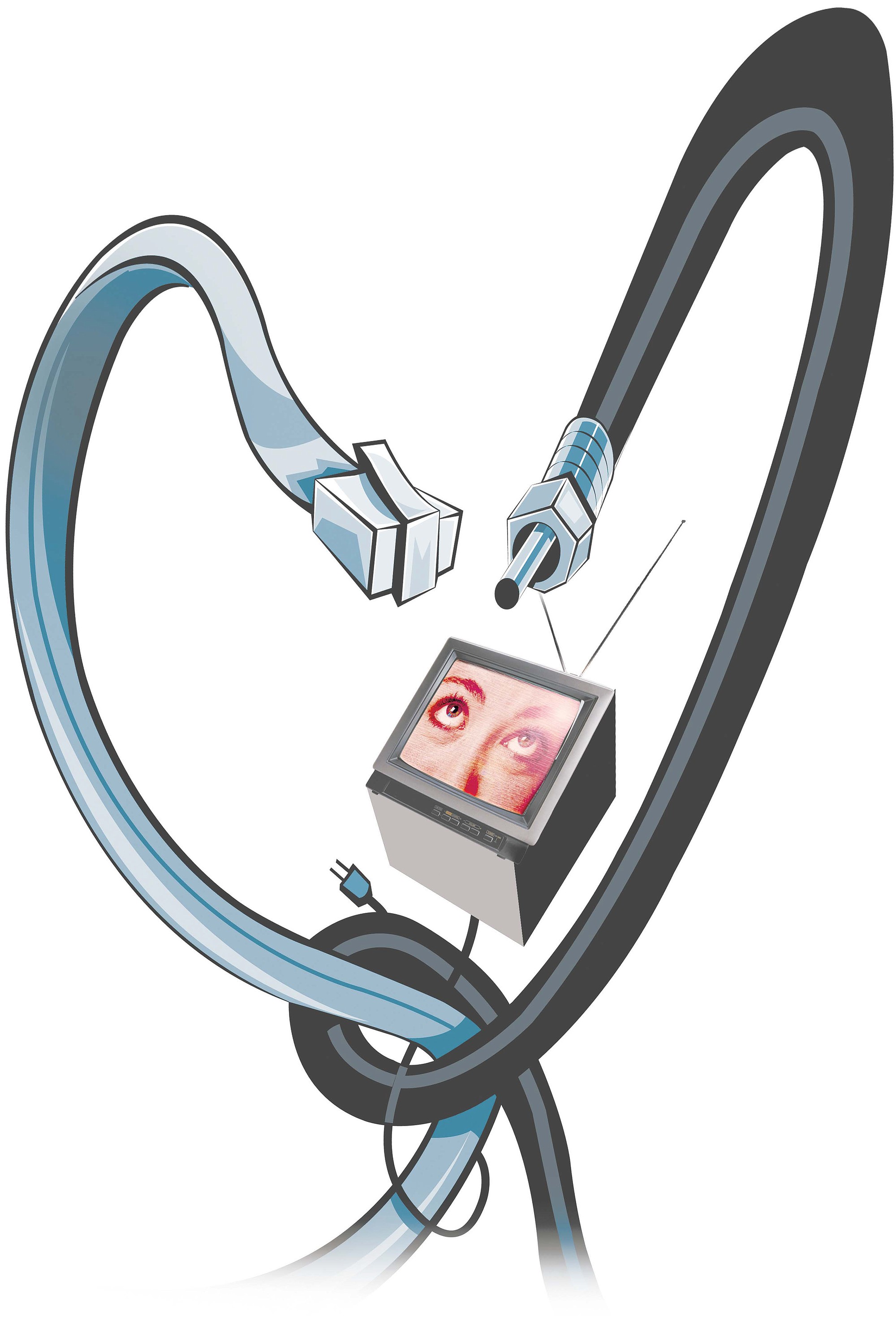The iPhone generation is putting more pressure than ever on pay-TV companies like Comcast and DirecTV, forcing the industry to rethink how to woo young people who prefer their entertainment cheap and online.
Millennials’ linear television viewing — the old fashioned time- and channel-based kind — has been falling for years, at about 4 percent annually. Between September and January, the drop was 10.6 percent, the largest ever, according to Nielsen data. About a quarter of 18-to-34-year-olds watch linear TV, while 44 percent of baby boomers do. Linear viewing for all ages in the U.S. peaked in 2013.
The pay-TV industry is starting to respond with pared-down lineups and creative packaging. Dish Network Corp. started Sling TV, which for $20 monthly delivers 14 channels. Verizon Communications Inc. sells a FiOS package of broadband access, local channels and HBO for $59 a month, and for a few weeks late last year added Netflix Inc. as a bonus.
Cheaper may not be enough for the millennial generation, which has surpassed the boomers to become the largest. They want freedom of choice, said Mike Goodman of Strategy Analytics. “They just want programming that matches their lifestyle.”
For Anna Lipin, an 18-year-old Yale University freshman, that means borrowing passwords to watch HBO Go and other services that let her decide when it’s time to catch up on “Girls” or “The Mindy Project.” She’ll get her own accounts when she can afford them but doesn’t want to commit to traditional pay-TV, she said. “I just don’t think the benefit I would get from paying for cable would outweigh the cost.”
Most networks now offer some programming for free on their websites. Comcast’s NBC Universal said it’s developing an online fee-based channel dedicated to comedy shows. CBS Corp. has CBS All Access, with live TV and previously aired content for $5.99 a month, and is licensing old episodes to distributors; in April, “CSI: Crime Scene Investigation” will be on Hulu Plus.
“These new deals represent an extension of our evolving strategy in terms of how we monetize our content,” CBS President Leslie Moonves said during the company’s fourth quarter earnings call.
Sony Corp. has said it plans to introduce an Internet-based TV service called PlayStation Vue. HBO is expected to roll out its stand-alone streaming service this year. It’s not disclosed what the monthly charge will be.
HBO going out on its own, making “Game of Thrones” and other popular shows available for the first time without a pay-TV subscription, will be a new test, said Brett Sappington, director of research at the consulting firm Parks Associates.
The pay-TV industry isn’t giving up. The $59-a-month Verizon package with broadband “did exceptionally well,” Alberto Canal, a spokesman, said in an email. “I can tell you that Internet is the anchor in any offer to millennials.”
Greg Austin, a 29-year-old who works in sales in Seattle, said he doesn’t like paying $70 for a DirecTV package that gives him 150 channels, only about 30 of which he watches. Cheaper Sling TV isn’t the answer because he couldn’t see it on all his mobile devices. Anyway, the only pay-TV deal that would really make him happy would be one letting him decide the lineup, he said. “I’d be on cloud nine.”
That’s not an option now. Most deals with networks require that subscribers receive relatively unpopular channels along with the ones audiences crave. What’s more, the fees cable and satellite companies pay to content providers help finance high- quality, popular programs. Without them, those costs would be passed on to Netflix and other services, Sappington said.



